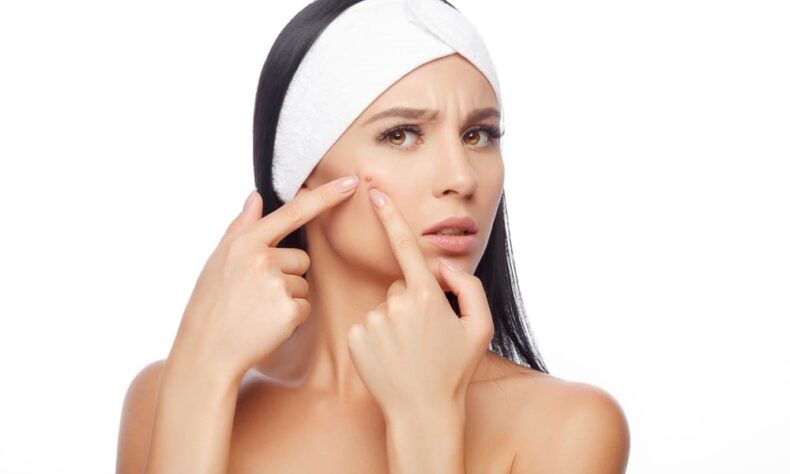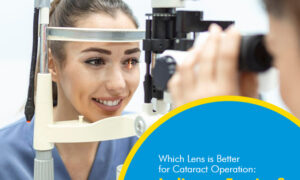
Old acne scars can last a lifetime. These marks can be treated with natural methods. But you may need a different method to remove stubborn scars or deep ones.
Acne scars can remain on the top layer of your skin. Although it can affect your appearance, the good news is that you can make these pimple marks less visible.
According to the top skin specialist laser treatment for acne scars can help break down scar tissue on the top layer of the skin. Removing scar tissue is the best way to remove acne scars. Yes, laser treatment is focused on new skin cell development.
People should not have dark skin tones or wrinkles in order to receive this treatment. You can have a professional help you determine if this treatment is right for your skin. If you are sad or depressed because your scars make you feel so then do not hesitate in seeking help from best psychologist in India.
Clearer Skin
Laser treatment can be performed in two ways. To remove scarred skin, the laser heats it. Heating can be used to remove the skin’s top layer and allow new skin cells to grow. This makes scarring less noticeable and your skin smoother.
The light of the laser and heat stimulate new skin cell growth during the breaking of scar tissue. It reduces inflammation and blood vessel swelling. It aids in the healing of scar tissue and reduces reddening.
Let’s see how many laser treatments we have.
1.Common Laser Types
There are many types of laser treatments that can be used to reduce pimple scarring. It all depends on the skin. These types include carbon dioxide, pulsed-dye laser, etc.
2.Non-ablative laser resurfacing
Infrared lasers are used to reduce the appearance and size of scarring on the skin. Your skin produces more collagen thanks to the heat. The heat stimulates new cell growth and replaces damaged tissues. It makes your skin appear healthier and more radiant.
3.Ablative laser resurfacing
This treatment may include the erbium-YAG or carbon dioxide. This treatment focuses on the skin’s top layer and removes it. The reddening of the skin can last up to 4-8 days.
4.Fractional Laser Therapy
Fractional, also known as Fraxel , focuses on controlling scar tissue to eliminate cells from the top layer of the skin. Laser treatment can be done on certain areas of the body such as the neck and upper torso.
It is important to find out if there are any side effects from this treatment.
Side Effects
You need to be cautious when using a laser to prevent side effects. It all depends on the type of skin you have, how often you use it, and what your treatment is. You may experience some common side effects, including redness, swelling and pain.
The pain may last for up to 2 hours. Avoid sun exposure as it can cause skin damage and even pigmentation.
Although it is uncommon to get an infection, you can still be at risk until your skin heals properly. If you have symptoms such as swelling, redness, or pus, it is important to seek medical attention.
If you don’t have stubborn or deep acne scars , these are some tips:
Black seed oil: This is an anti-inflammatory oil that can reduce swallowing and minimize the appearance of marks. It promotes wound healing, and helps get rid of pigmentation.
Honey: Honey is a great home remedy because it has wound healing properties that promote skin health. It acts as an antibacterial agent and reduces scarring.
It can be applied directly to your skin and you will notice a difference. It can also reduce pimple marks and fight infections.
Lemon Juice: Although there isn’t any research to support the effects of lemon juice on scarring, many people claim that using lemon-made masks makes their skin smoother and more clear. You should not directly apply lemon juice as it can cause irritation and redness. You can use honey and lemon together to achieve better results.
Raw milk: To dip your cotton swab into the raw milk, all you need is a cotton towel. Let it sit on your face for at least 30 seconds. To wash your face, use lukewarm water.
Aloe vera Gel: This gel has anti-inflammatory, antioxidant and healing properties. Fresh Aloe vera gel is more effective in treating skin dryness and decreasing the appearance of acne scars. You may have stubborn pimples that need medical attention. If it’s a mild case, it can be treated at home with aloe vera gel. Leave it on for 10 to 15 minutes. To wash it off, always use lukewarm.
Papaya ripe: To treat pimple marks, you need to mash the papaya to make a paste. You can also use pineapple juice to treat pimple marks if you don’t have papaya right now.
Bio-oil is a home remedy for scarring. It should be applied only once, and not on any open wounds.
Rosehip oil: Acne scarring can be darker, and you might experience hyperpigmentation. Rosehip oil is rich in beneficial nutrients like vitamin A, linoleic acids and other antioxidants that help to reduce pigmentation.
Consistency is key. For better results, you need to care for your skin on a regular basis. Avoid products that are low quality as they can cause skin problems.
No matter how many helpful tips you have, it is still important to see a doctor before you use any natural products at home.
Types Of Acne Scars
A scar may be left if a person attempts to remove a pimple by sucking it. This can also lead to deep infection and bleeding. These scars can also cause burns and keloids.
There are two types of scars: atrophic or depressed scars.
Atrophic Scars
These scars are caused by the thin skin layer. This is a hole that develops near the skin, and can get deeper. These types of scars can take a long time to heal.
Boxcar Scars
This type is characterized by deep and round depressions. This type is found in the lower cheeks and jaw region.
Rolling Scars
Rolling scars can occur on thick areas of your skin like the jaws or lower cheeks. This causes your skin to become uneven and wavy.
Final Thought
Natural home remedies can be used to clear your skin. They don’t have any side effects and are safe for you. Vitamin C can be used to improve the health of your skin. Consult your doctor if you have stubborn scars on your skin. Dr.R.K.Suri says do not let anything affect your mental health.






